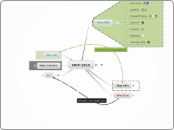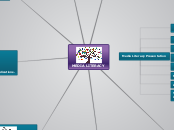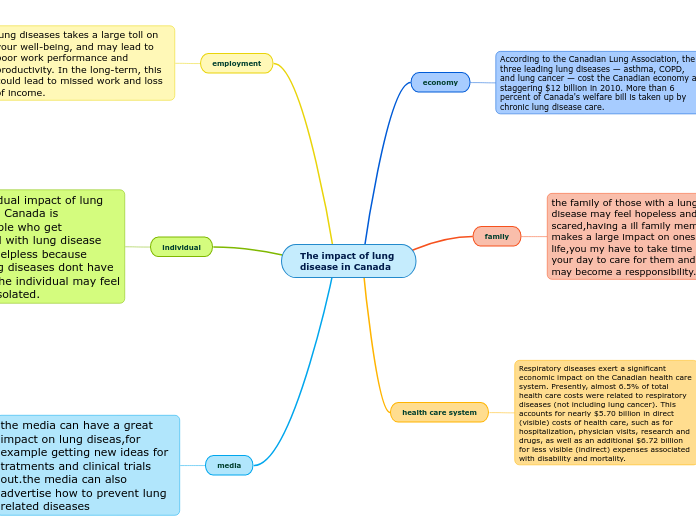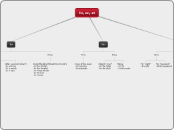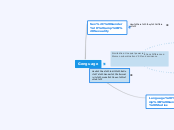MMP-2013
i'm here from mf-n, have an mmp int. and exp., since 1999 polls -- on top, got a ck-npi invite, a chance to share my thoughts
the elections, in a democracy, respect the right of:
The VOTER
The CANDIDATE
The MEDIA
Media monitoring involves collecting data and carrying out analysis of elections-related content of print, broadcast and online media, and presenting the results.
media monitoring provides broader benefits to an electoral process ... evaluating the extent to which elections were fair in terms of freedom of expression by the media, voters and candidates; acting as an early warning system for elections-related violence; promoting the participation of women and minorities; and enhancing media literacy of elections officials and the public at large
EMBs contract outside experts to monitor the media, or to collaborate with the university media studies or other social science departments or civil society organisations.
Code
Free & fair media
Goal: Free & fair elxn
Great panel
Why I'm Here
Friends
EC
IS
NPI
CK, PK
Expertise
New Media Tools
News, Analysis, Report Writing
Trend Spotting
Data Integrity
Literacy-Numeracy
Experience
Implement
Mobilize
Discover
MMP-2008
Interest
Read Data
Look For Substance
Know Horse Race
Read Drama
Talk Media
Why NPI
Professional Org.
Infrastructure
Long History
Why PCN
Institutional Exp.
Independence?
Has Done It
Knows Code
Why MFN
Professional, Ind. Org
Interest, Strength
Individual Exp.
Great Team
Why MMP
MMP-2008 began with the objective to assess the nature of media access to political parties and their candidates, balance in the coverage of their viewpoints, the range and adequacy of voters' education programs, the representation of Election Commission and communication of its messages, and the observance of Election Code of Conduct by the mass media.
Brunei - - - - -
Cambodia
Parliamentary 27-Jul-08 COMFREL,
NICFEC EU, ANFREL -
Commune
Council 03-June-12 COMFREL,
NICFEC ANFREL Cambodian
Indonesia
Regional (Aceh)
11-Dec-06
and 4-Mar-
07
??? EU, ANFREL -
Presidential 08-Jul-09 - - -
Legislative 09-Apr-09 ???
ANFREL,
Carter Center* -
Regional (West
Papua) 20-Jul-11 ??? ANFREL -
Regional (Aceh) 09-Apr-12 KIP ANFREL -
Lao PDR
Parliamentary 30-Apr-06 - - -
Parliamentary 30-Apr-11 - - -
Malaysia
Parliamentary 08-Mar-08 - - -
Permatang Pauh
by-election 26-Aug-08 NIEI ANFREL -
Kuala
Terengganu byelection
07-Jan-09 NIEI - -
Parliamentary Before 27-
Jun-13 ??? ??? Jom Pantau
Myan Parliamentary 07-Nov-10 - TACDB** Burma
Referendum 10-May-08 - - -
By-Elections 01-Apr-12
Election
Monitoring
Network (88
Generation
Students)
ASEAN -
Philip
pines
Legislative 14-May-07 NAMFREL ANFREL -
Regional
(Mindanao) 08-Aug-08 ??? ANFREL -
Presidential &
Legislative 10-May-10 NAMFREL**
*, PPCRV
ANFREL, Carter
Center*
Vote Report
Philippines
Singap
ore
Parliamentary 07-May-11 - - -
Parliamentary 06-May-06 - - -
Presidential 27-Aug-11 - - -
Thaila
nd
Parliamentary
(Nat’l
Assembly)
02-Apr and
23-Apr-06 ??? - -
Parliamentary
(Senate) 19-Apr-06 ??? - -
Referendum 19-Aug-07 ??? ??? -
Parliamentary
(Nat’l
Assembly)
23-Dec-07
Poll
Watch/PNET
ANFREL -
Parliamentary
(Senate) 02-Mar-08 ??? ??? -
Parliamentary
(Nat’l
Assembly)
03-Jul-11
Poll
Watch/PNET
EU, ANFREL
Thai
Election
Watch
Timor
-Leste
Presidential 09 Apr and
09-May-07
SOMET,
KOMEG EU -
Parliamentary 30-Jun-07 SOMET,
KOMEG
EU, Carter Center,
NDI, ANFREL,
IFES-EWER
-Draft – Do not cite Max Grömping – ICIRD Page 11 of 25
Presidential 17-Mar and
16-Apr-12
SOMET,
KOMEG
UN, ANFREL, IFESEWER
Belun
Parliamentary 07-Jul-12 SOMET,
KOMEG
UN, ANFREL, IFESEWER
Belun
Viet
Nam
Parliamentary 22-May-11 - - -
EMBs want to: 1. determine rule on access to the media are being respected – for example, in the allocation and timing of free direct access or advertising slots, 2. review political parties and candidates fair access and coverage in news;3. identify any emerging issue relating to electoral management or the conduct of the campaign that the EMB itself may have to address;4. see how the activities of the EMB itself are being reported.
Campaign 2008
Elsewhere
Examples
Deterrent
Standard Practice
Common: Media monitoring has become a common feature of elections since the mid-1990s.
Monitoring usually uses "quantitative analysis" or "qualitative analysis" of media content, or both.
The Unit: has a media analyst, a number of trained media monitors familiar with the political context and the media situation in the country -- with a background in media studies and/or experience in sociological research are preferable
monitors should not work as journalists or be members of political parties or movements
not just important, but standard practice in the management of elections
Legit Elex
For example, during the ... Bolivian referendum, there were few (though some) accusations of ballot-stuffing or denying of voting privledges, ... the greater election violation was the monopolization of television advertisment time by the the Morales government.
Yet international obeservers, often the most quoted in western newspapers, were only present for a few days before and after elections, thus the lack of balanced coverage was under reported. Are there suggestions on how this can be avoided?
Democracy
informed choice
media: channel of information between
the contestants and the public, an arena for public debate, inform citizens of the policies and platforms of candidates and parties, enable voters
to make an informed decision when they cast their ballots.
report on campaign developments, inform voters on how to exercise their rights, monitor the electoral process, and report the results to the public.
it is important to consider their degree of autonomy, i.e., their freedom from political or other interference, as well as the degree of media diversity.
inter-related rights and duties: of the voters, of the parties and candidates, and of the media themselves
